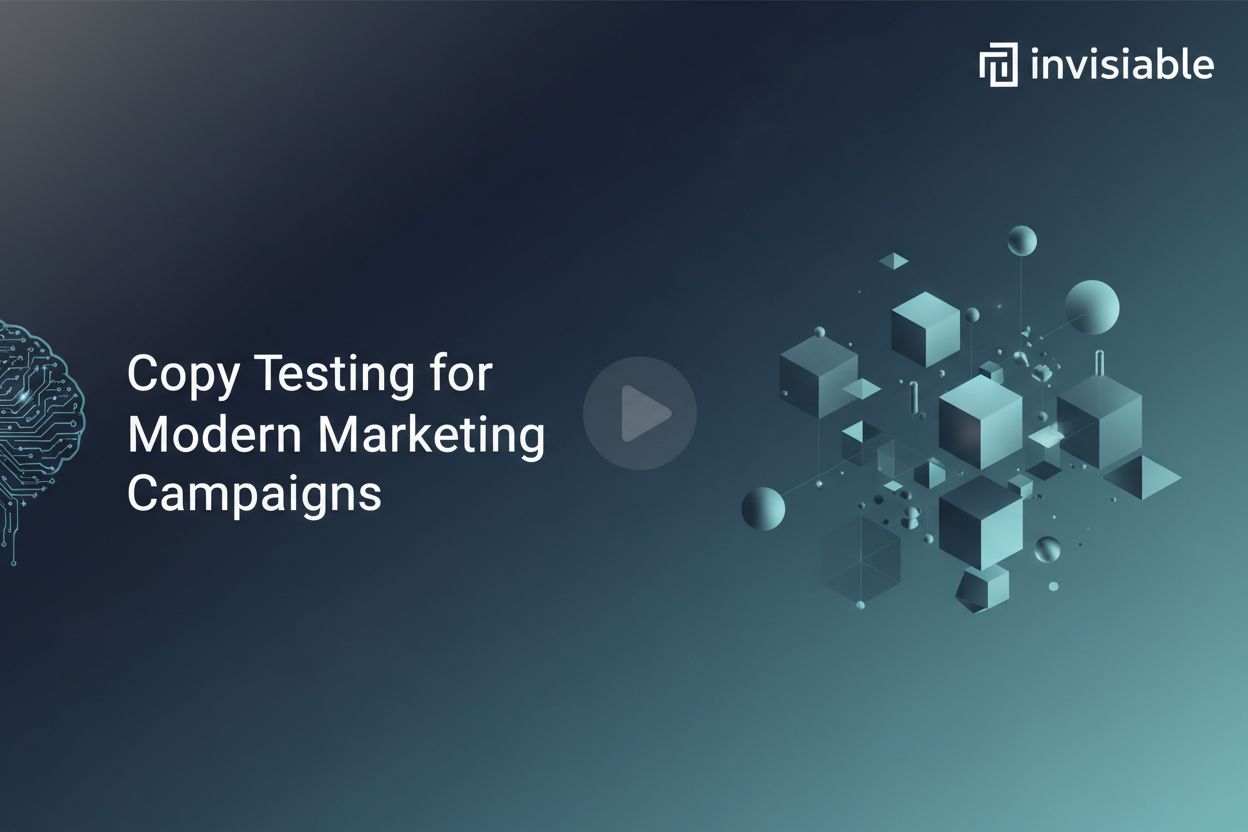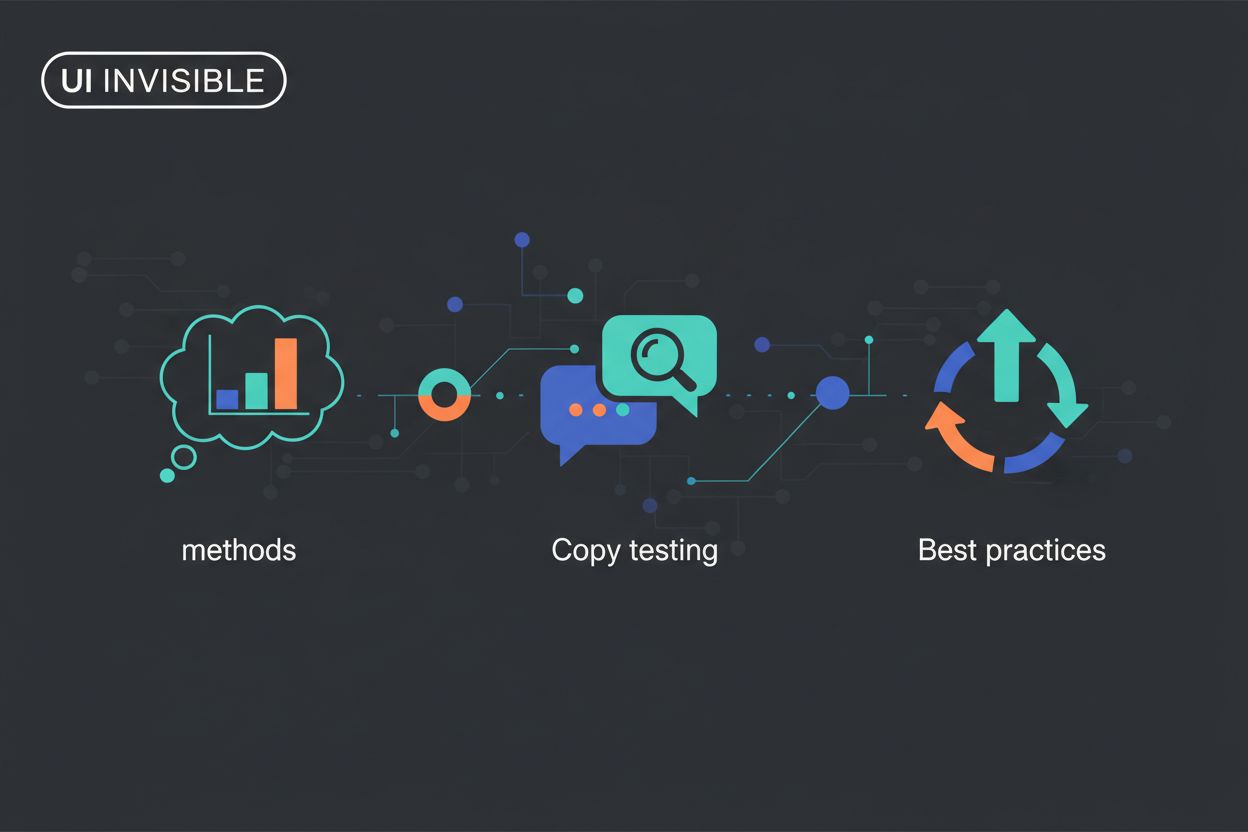Unlock Personalized Content How AI Supercharges Your Marketing
TL;DR
Unlock Personalized Content: How AI Supercharges Your Marketing
The Rise of AI Content Personalization in Marketing
AI is fundamentally reshaping the marketing landscape, and at its core is the power of content personalization. In today's digital environment, customers don't just expect tailored experiences; they actively seek them out. Generic, one-size-fits-all content is increasingly overlooked, making personalized engagement a critical differentiator for brands. This article will explore the growing importance of AI in achieving this, detailing how it works, strategies for implementation, the tools available, and how to measure its success, while also addressing the inherent challenges and ethical considerations.
AI's ability to analyze vast amounts of user data—spanning browsing history, stated preferences, and past interactions—allows for a deep understanding of individual needs and desires. This data-driven insight enables marketers to move beyond superficial personalization, such as simply addressing a customer by name, to delivering truly relevant and engaging content. Furthermore, AI has made real-time personalization a reality, allowing content and offers to adapt dynamically as a user interacts with a brand. This capability extends to automating content creation and delivery, freeing up marketing teams from manual, time-consuming tasks. For instance, a healthcare provider could leverage AI to send personalized wellness tips based on a patient's specific medical history, or a retailer could showcase products tailored to a customer's recent browsing activity.
Understanding AI's Role in Content Personalization
AI's impact on content personalization is driven by several core mechanisms that work in tandem to create bespoke customer experiences.
Core AI Mechanisms
- AI Algorithms: These are the foundational engines of personalization. AI algorithms meticulously process user data to identify patterns and preferences, enabling the tailoring of content to individual needs. This goes far beyond basic segmentation, creating highly specific content experiences.
- Dynamic Adaptation: AI facilitates real-time content adjustments based on a user's current behavior. Factors such as website navigation, click patterns, and even dwell time on specific elements are analyzed to modify the content presented on the fly.
- Delivering Relevant Experiences: The ultimate goal is to provide personalized interactions across all customer touchpoints. This includes crafting emails, website content, and chatbot conversations that feel uniquely directed at the individual user.
Data and Strategy
- Customer Data as Fuel: The effectiveness of AI personalization hinges on comprehensive customer data. This encompasses demographic information (like age and location), behavioral data (website visits, app usage), and transactional history (past purchases).
- Data Collection and Integration: To build a holistic view of the customer, companies must implement robust data collection and integration strategies. This involves consolidating information from various sources, including CRM systems, website analytics, and social media platforms.
- Customer Personas: Developing detailed customer personas is crucial for marketers. These archetypes represent distinct audience segments, making it easier to conceptualize and target content effectively.
Advanced AI Applications
- Machine Learning for Recommendations: Machine learning algorithms, such as collaborative filtering (identifying users with similar tastes) and content-based filtering (recommending items similar to those previously liked), are instrumental in suggesting relevant products or content.
- Natural Language Processing (NLP): NLP empowers AI to craft personalized messaging, including emails and ad copy, that resonates more deeply with individual users, thereby increasing the likelihood of engagement and conversion.
- Predictive Analytics: By anticipating future user actions, predictive analytics allows marketers to proactively deliver relevant content and offers, optimizing the overall customer journey.
Understanding these fundamental AI mechanisms is essential for effectively leveraging customer data to deliver a truly customized experience.
Strategies for Implementing AI Content Personalization
Implementing AI-powered content personalization requires a strategic approach, moving from conceptualization to practical application.
- Define Clear Goals: Begin by establishing specific, measurable objectives for your personalization efforts. Whether it's increasing conversion rates by a certain percentage within a quarter or improving customer retention through personalized onboarding, clearly defined goals provide direction. For example, a goal might be to boost conversion rates by 15% in the next quarter or enhance customer retention by personalizing onboarding emails for new users.
- Select Appropriate AI Tools: The market offers a wide array of AI tools, each with unique strengths. When choosing, consider your budget, existing technology stack, and scalability needs. Some platforms provide comprehensive personalization suites, while others specialize in specific areas like email marketing or content recommendation. Ensure the chosen tool integrates seamlessly with your current CRM and marketing automation platforms to avoid integration headaches.
- Integrate AI into Workflows: Rather than treating AI as an add-on, embed it into your existing content creation and delivery processes. This could involve using AI to analyze customer data and generate personalized content briefs for your writers, or to optimize email send times based on individual user behavior. For instance, a small online clothing boutique could use AI to tailor website content based on a customer's preference for dresses or pants. Similarly, a financial services firm might employ AI to personalize investment advice according to a client's risk tolerance and financial objectives. As highlighted by Forbes, generative AI can streamline content creation, making it both efficient and impactful while preserving the personalized essence that customers value.
With a solid understanding of these strategies, exploring the tools that can facilitate their implementation becomes the logical next step.
Top AI Tools for Content Personalization
Leveraging the right AI tools is crucial for orchestrating effective personalized customer experiences. These platforms go beyond basic data analysis to actively shape how customers interact with your brand.
- Optimove: This platform excels in audience segmentation, allowing you to group customers based on a variety of factors, including behavior, demographics, and purchase history. This ensures your content is highly targeted. For example, a fitness app could use Optimove to deliver personalized workout plans tailored to individual user activity levels and fitness goals.
- Personalize.ai: As its name suggests, this tool is dedicated to creating personalized experiences. It utilizes AI to dynamically tailor website content, product recommendations, and even pricing for individual users. Consider an e-commerce store that uses Personalize.ai to present different product bundles based on a customer's browsing history and past purchase patterns.
- Bloomreach: Known for its robust marketing automation capabilities, Bloomreach assists in automating personalized email campaigns, social media posts, and other marketing activities driven by customer behavior. A fashion retailer, for instance, could employ Bloomreach to send automated emails featuring items similar to those a customer has recently viewed.
These tools are designed to ensure the right message reaches the right person at the opportune moment, effectively enhancing customer engagement.
Measuring the Success of AI Personalization
To gauge the effectiveness of your AI-powered personalization efforts, it's essential to track key performance indicators (KPIs) that reflect customer engagement and business outcomes.
- Engagement Rates: Monitor metrics such as click-through rates (CTR) and time spent on page. Are users actively interacting with your personalized content? A study in 2025 indicated that personalized content significantly boosts time on page.
- Conversion Rates: Assess whether personalized content is driving desired actions, such as sales or lead generation. If conversion rates aren't improving, it may signal a need to refine your personalization strategy.
- Customer Satisfaction Scores: Directly solicit feedback through surveys to understand if customers perceive the personalized experience positively.
- Retention Rates: Analyze whether personalized engagement leads to increased customer loyalty and longer-term relationships.
Tools like A/B testing platforms (e.g., Optimizely) are invaluable for comparing different personalization approaches and identifying what resonates best. Analytics tools such as Google Analytics are essential for tracking the aforementioned metrics. Customer feedback surveys also provide direct qualitative insights. Analyzing this data allows for continuous refinement of AI algorithms and content strategies, ultimately driving better performance.
With a clear understanding of how to measure success, it's crucial to consider the ethical implementation of these powerful personalization strategies.
Overcoming Challenges and Ethical Considerations
While AI personalization offers significant advantages, it also presents challenges and necessitates careful consideration of ethical implications.
- Data Privacy and Security: Adhering to regulations like GDPR and CCPA is paramount. This involves implementing robust security measures to protect customer data from breaches and maintaining transparency with customers about data collection and usage. Encryption is a key strategy for safeguarding data.
- Authenticity and Brand Voice: Ensuring AI-generated content aligns with your brand's values and maintains an authentic voice is critical. Avoid generic content that could alienate your audience. Balancing automation with a human touch, and maintaining human oversight in the content creation process, is essential. Continuously monitor AI outputs to ensure they reflect your brand's unique identity.
- Algorithmic Bias: Be vigilant about potential biases in AI algorithms that could lead to unfair or discriminatory personalization. Regularly review AI outputs to identify and mitigate any unintended consequences, ensuring personalization efforts are equitable for all customer segments.
Addressing these challenges proactively is key to building trust and ensuring that AI personalization is both effective and responsible.
Case Studies: Successful AI Personalization
Examining real-world examples illustrates the tangible benefits of AI-powered personalization.
- Netflix: The streaming giant leverages AI to suggest content based on individual viewing history. Their sophisticated algorithms analyze viewing patterns, time of consumption, and the preferences of users with similar tastes. This highly personalized approach significantly boosts viewer engagement and subscriber retention, which are core to their business model.
- Starbucks: Through its mobile app, Starbucks employs AI to personalize customer orders. Beyond simply remembering a customer's name, the AI learns individual preferences over time, making it easier for customers to reorder their usual drinks. This enhances customer satisfaction and drives repeat business.
These case studies demonstrate how AI personalization, when implemented effectively, can lead to deeper customer engagement and stronger business outcomes.





